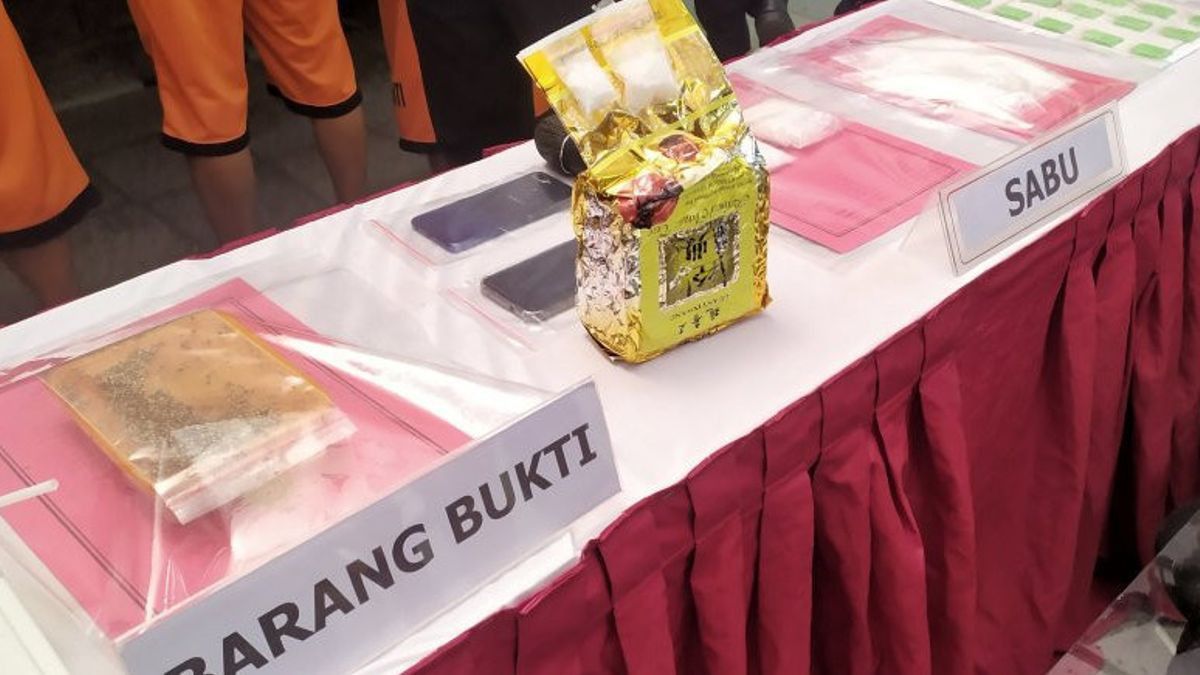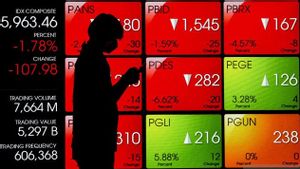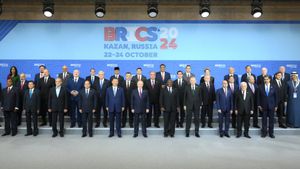JAKARTA - The involvement of the police in the narcotics business implies the withdrawal of efforts to overcome the illicit trafficking of narcotics. Sadly, cases like this are not the first time this has happened. It becomes like hanging chicks, meaning wasted work. Naturally, because efforts to eradicate the illicit trafficking of narcotics do not go to the root. In fact, drug money has dazzled many police officers.
Several days ago, a furor broke out when a middle-ranking police officer with the rank of Kompol was caught in a case of smuggling of methamphetamine-type narcotics in Pekanbaru, Riau. The goods that were smuggled were not half-hearted, namely 16 kilograms.
This person is Police Commissioner Imam Zaidi Zaid (55), a policeman who has the position of Head of the Identification Section of the General Criminal Investigation Directorate at the Riau Police. According to the Director of the Riau Regional Police's Narcotics Research, Kombes Victor Siagian, as reported by Detik, Imam conspired with an international drug network with the initials HW and HR. HW has been caught with Imam, while HR is still at large.
His arrest also caused an uproar among residents around Jalan Parit Indah, because there was an action of chasing the Riau Regional Police with the suspect. Before being arrested, the suspect hit a resident's car. For resisting, the Imam had to feel the hot lead penetrating his body.
Long noteThe involvement of police officers in narcotics cases is not new. Last year alone, according to the Criminal Action Directorate for Narcotics, Bareskrim Polri, quoted by Bisnis, there were 515 cases of unscrupulous police involved in drug cases. That number increased from 2018 when there were 364 cases.
Commissioner for the National Police Commission (Kompolnas) Poengky Indarti suspects that the background of the involvement of police officers in the narcotics business is because of money. To pursue this, "those concerned take advantage of their position and authority as members of the police," said Poengky when contacted by VOI.
Of course this action cannot be justified and must be dealt with firmly. Poengky explained the appropriate harsh punishment related to the involvement of police officers in drug networks, namely "being immediately fired and prosecuted," he said. For example, this year the Depok and Dumai District Courts sentenced police who were proven to be involved in a drug network.
Meanwhile, the Director of the Community Legal Aid Institute (LBHM), Muhammad Afif Abdul Qoyim agreed with Poengky's allegation that the reason police officers were involved in the narcotics business was because there were financial benefits. "The huge financial potential tempts the authorities to get involved in it," Afif told VOI.
Afif said, most officials involved in this business do know the potential benefits not only from finance but also power. Moreover, the apparatus, said Afif, is indeed the person who has access and knows the loopholes.
"For example, someone who knows a police officer, he could be bribed. That does not rule out the possibility. Because our judicial system is still corrupt," said Afif.
Not overcome to the rootAfif further explained why this practice is still common. According to him, the problem of illicit narcotics trafficking is only handled by the skin. However, the root of the problem, namely the illicit market for narcotics, has not been touched by the state.
Afif criticized the state's ways of dealing with the narcotics problem, which according to him only touched the outside. For example, this issue is mostly handled using law enforcement such as arrest and rehabilitation.
Afif said that the methods of arrest were less effective. For example, from one case of drug arrest being developed, "At least one to two networks are revealed," he said.
In fact, according to Afif, the root of the problem lies in the black market where narcotics are circulating. He suspects why this issue has not been touched is because the black market has the potential to be exploited. "Because the state knows there are conspiracy problems, seeing that there are financial benefits that are not recorded," he said.
For that he explained many theories that could be applied to solve the problem of trafficking narcotics on the black market. One of them is to allow the use of narcotics for medical purposes in small amounts.
"Based on the theory of supply and demand, when the black market is regulated, the supply gets supplies from the market regulated by the state. Suppliers who take advantage of the black market will think twice because there is no price anymore. In addition, if the state regulates it. the use of narcotics in limited quantities, then the state will be able to control its use, "explained Afif.
The English, Chinese, Japanese, Arabic, and French versions are automatically generated by the AI. So there may still be inaccuracies in translating, please always see Indonesian as our main language. (system supported by DigitalSiber.id)









